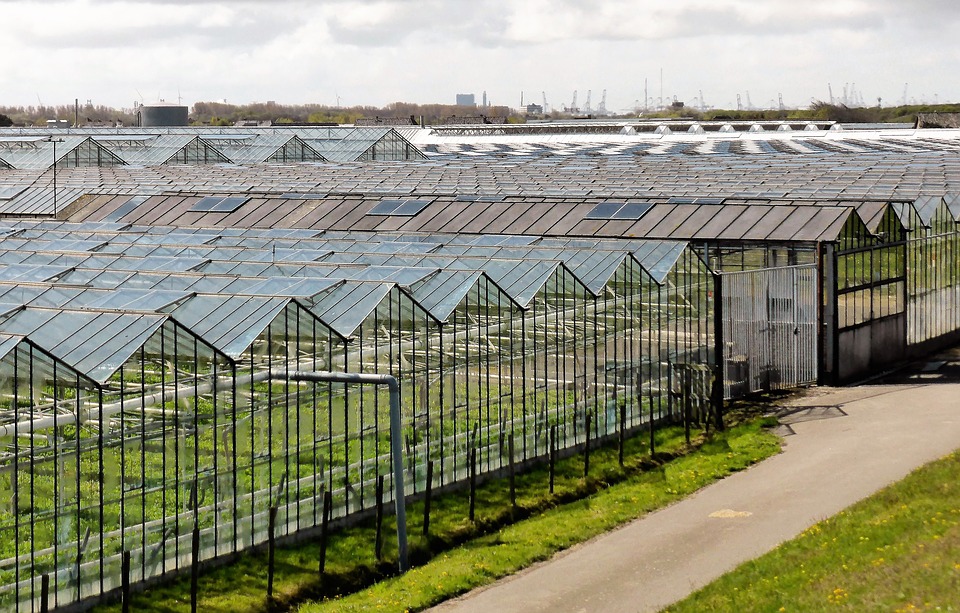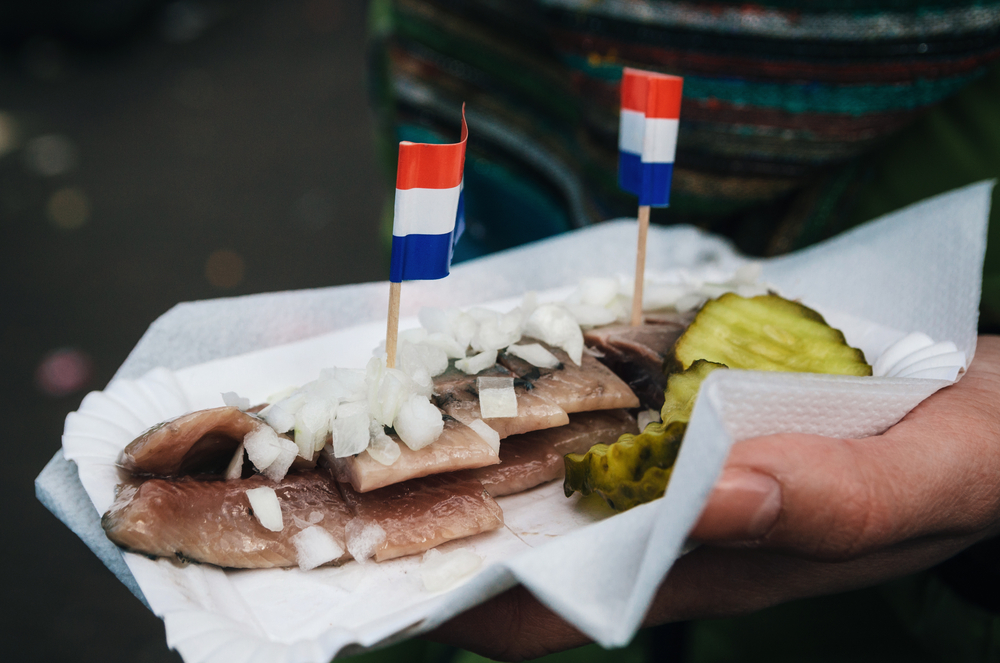France and the Netherlands may share a love of bread, the same three colours on their flags, and a weirdly extensive knowledge of types of cheese — but that’s where the similarities stop.
In fact, there’s a stack of differences between those Dutchies and Frenchies — here are just 19 of them.
Curious about experiencing the French and Dutch life for yourself? Undutchables are la meilleure recruitment agency when it comes to French-speaking jobs in the Netherlands. Trés bien!
1. Dutchies love a simple lunch
“Lekker broodje, he?” (delicious sandwich, right?), the Dutchie says, eyes closed and savouring their €0.60 white roll with a single slice of cheese. Yep, in the Netherlands, lunch is for sustenance and a quick break only.

But the French? Oh boy, the French do this right. Long, leisurely lunches, with a starter and a main, even on work days. In fact, a two-hour lunch break isn’t unheard of in France — conversation and digestion reign supreme.
Don’t even get us started on those miniature, single-serving wine bottles.
2. French people don’t get fired
Alright, obviously, if you choose to dance naked on the boardroom table while singing about how you embezzled thousands of euros, you might get a one-way ticket to unemploymentville.
However, in general, terminating employment in France is hard: there’s a strict procedure, a need to see just cause, and even a notice period before the employee can finish up.
READ MORE | 11 weird things about being French and working in the Netherlands
How do the French get around it? A sneaky concept called mise au placard (put in the closet). It’s a practice of giving unwanted employees the worst possible tasks in an effort to force them into quitting. 😳
In the Netherlands, on the other hand, while it’s not easy to fire someone, it’s certainly more possible.

Because the Netherlands takes job contracts seriously, the employer might just wait for someone’s contract to finish. However, if they’re in a rush, they can also choose to immediately dismiss someone for serious issues — or even go to civil court for permission to fire someone.
Fired by court ruling? Yikes!
3. Dutchies love to speak English
Yes, yes, it’s not a secret that the Dutch speak some of the best non-native English in the world. That’s great — until you try to learn Dutch to integrate into society. Every time you gargle your words out, the Dutch shopkeeper immediately switches to perfect English. Hmmph!
While this can be frustrating, it also means that you don’t necessarily have to learn Dutch in order to become a functioning member of Dutch society.

In fact, the Dutchies came in first place for non-native English in the EFI rankings. In contrast, France is ranked 31st, below Lithuania, Estonia, and Serbia.
Why? The French feel a deep sense of pride in their language, linking it closely with their French identity. For internationals living in France, learning French is vital to be accepted as part of the ‘peuple français’ (‘French people’).
4. The French believe in hierarchy
In France, what your boss says goes.
That doesn’t mean you can’t voice any concerns or have a polite debate with your manager, but the French have a strong sense of authority — and, unlike the Dutch, they actually respect it.

Most companies in France operate with a top-down management structure, meaning you better get used to a hierarchical division of labour. Teamwork? Well, safe to say it isn’t always on the agenda.
Contrastingly, the Dutch have a knack for disrespecting authority.
Now, we don’t recommend being rude to the higher-ups — but when working in the Netherlands, there’s more room for friendly banter with the boss.
5. Dutchies are all about negotiation
The Dutch have long lived in a society where conference, dialogue, and arbitration are king. In fact, they’re famous for polderen, a method of policy-making that targets a win-win for both parties.

Quick history lesson: polderen is thought to come from the Dutch polders, parts of lands protected by dikes. Since the Middle Ages, Dutchies have had to band together to pump water out of the polders and maintain the dykes — a.k.a. cooperation!
Meanwhile, French people love the sentence J’ai le droit (I have the right). This flows into all aspects of French society: the right to smoke, the right to be upfront, the right to protest, or the right to the last glass of wine from the bottle. Speaking of wine…
6. The Dutch are happiest with a beer in hand
Proost! It’s Friday in Holland, 5 PM, and high time to lift a glass (or more likely a bottle) to your colleagues.
In the Netherlands, the workweek usually culminates in a borrel: an informal get-together where you share a pint and some gossip with your co-workers before heading home to your families.

Soooo, santé? In France, while beer consumption might be on the rise, wine is still the preferred poison of the French. In fact, the Netherlands ranks 31 places higher than France when it comes to beer consumption per capita.
However, we’ll give the French this: drinking wine on a lunch break? That’s a cultural phenomenon we can get on board with. 🍷
7. French people value education
France is known to produce highly educated and — here we go — cultured people.
However, in recent years French educational institutions have gotten a bit of a bad rep due to their rigorous curriculums, a lack of focus on student wellbeing, and too much pressure being put on students to graduate from the country’s top universities.

While Dutchies like education and a diploma or two certainly won’t hurt your chances of landing a well-paying job, experience is the name of the game in this low-lying country.
Most Dutch educational institutions also pride themselves on their hands-on approach to education and seek to bridge theory and practice.
8. The Dutch hold on to their money
There it is: the stereotypical Dutch stinginess. It’s no secret that Dutchies like to hold on to their cash — in fact, being frugal is deeply rooted in Dutch history.

Calvinist principles remain deeply rooted in the modern-day Netherlands, though now they’re mostly exhibited in the form of minuscule Tikkie requests and a frequent refusal to accept credit cards. 😉
The French, however, have a more laissez-faire attitude to life, and if the wine costs a little more than expected, well, c’est la vie. 🤷♀️
In general, the French are what Dutchies would call bourgondisch, meaning they have an indulgent lifestyle. While not every French person lives off red wine and mussels, they do have a very high average level of consumption. Bon appétit!
9. It’s illegal to eat lunch at your desk in France
Now, forget the boring boterham you were planning to chew down while sitting in front of your work computer — the French are onto something. ✋
In fact, since the 1890s, labour laws in France have forbidden workers to eat lunch behind their desks.
Originally, it had to do with the factories of the nineteenth century being, um, unhygienic — but today, the French lunch break is ingrained in office culture. And what’s not to like about leisurely luncheons at a cute bistro?

Now, don’t get us wrong: Dutchies have a great work-life balance! However, the odd lunch behind the desk doesn’t kill them (or risk a performance management session by their boss).
10. The Dutch work together for the common good
Dutch directness can be quite a culture shock when you first touch down in the lowlands. However, there are many scenarios where the Dutch say-it-as-it-is attitude comes in handy — one of the most obvious being teamwork.
A skill cultivated from an early age, teamwork is what’s helped Dutchies reclaim their land from the sea, become forerunners in innovation, and earn the title of sustainability superheroes.

But, just like the size of their lunchtime wine bottles, the French are more of an individual folk.
READ MORE | 7 ways a Dutch job is different
That’s not to say the French workplace is as competitive as you are made to believe in ‘Emily in Paris’, but perhaps don’t list “teamwork” as the number one quality on your resume if applying for a job in France.
11. French people speak more formally
Remember when we said that France maintains quite a hierarchical structure in their companies and organisations?
Well, this goes for their language too. While a singular tu (informal ‘you’) is good enough for your friends and close family, it’s expected that you respect the hierarchical distance that separates you from your boss or elders by using vous (formal ‘you).

Meanwhile, while there is a formal way to address someone in Dutch, it’s rarely used. You might use the formal u if speaking to a nice elderly lady that you meet on the street — but otherwise, it’s considered a bit of an archaic structure nowadays. 🤷 In most situations, you’re better off using je instead.
12. The Dutch dress casually
Similar to their language use, the Dutch prefer to keep things casual when getting ready in the morning.
So, whether you’re at school, at the office, or out on the town, you likely won’t see Dutchies in anything more formal than a nice summer dress or a button-up.
READ MORE | Dutch Quirk #59: Wear way less make-up than people in other countries
Contrastingly, the French love to rock up to work, or even their Sunday stroll, looking like the fashionistas they’re reputed to be.

To the French, dressing up, however, doesn’t mean a face full of make-up or extravagant jewellery. Instead, French women in particular, are known for their casual chic style and barely-there makeup.
13. The French pride themselves on intellectualism
Sitting at a delightful French bistro, smoking a cigarette, and debating Foucault and Chomsky’s views on the innateness of human nature — le mieux de monde!
The French love to be viewed as intellectuals, with schools often focusing on theatre, music, art appreciation, and philosophy.

Meanwhile, the Dutchies are clever, but view intellectualism as overly pompous. A spirited debate? Zeker! Bragging about your deep understanding of Plato? Doeg!
14. The Dutch use meetings to make decisions
We’ll give this to the Dutchies: they are efficient! A Dutch meeting typically has a clear goal — to walk out of there with the next steps clearly laid out.

Meanwhile, the French love a debate (see above) and will happily deliberate on an issue over multiple meetings. Long lunch, anyone?
15. The French love fish with eyes
Why anyone would want a fish that looks at them while it’s being eaten, we don’t know. However, in France, serving a fish with a face proves that it’s fresh from the sea. A quick eye inspection and bon appétit!
This is one battle where there is no clear winner: after all, the Dutch eat haring, a raw fish covered in raw onion that slithers down your throat. Echt vies (really gross).

16. The Netherlands is open on Sundays
Woke up on a Sunday morning craving some fresh sinaasappelsap (OJ)? You’re in luck! While technically, Dutch stores should be closed on Sundays as a default, most municipalities have started giving special permission to open stores anyway — in big cities, almost all are.

That’s less than we can say for France. Outside of the main tourist areas, Sundays are a ghost town. Luckily, a boulangerie (bakery) may just be open — merci dieu!
17. Greetings in France are a big deal
Pucker up baby and prime your chapstick: the French take their greetings seriously. Let’s take office culture as an example: when you or someone else arrives, everyone stands up and greets them — often including cheek kisses.

Now let’s not forget that the Dutch are fond of a few cheek kisses themselves. Luckily, in an office environment a handshake (or even a fist bump) will suffice.
18. Dutch people get hired faster
When looking for a job, Dutch people are pragmatic: they expect an average of 2.4 job interviews before succeeding or being turned away. Any more than that and it’s just not efficient enough for them!

The French, on the other hand? It’s not abnormal to go through three to four rounds of interviews over multiple months — and some people even claim six to 10.
Well, if it’s going to be so hard to fire someone, we guess you want to be sure before hiring them.
Feel like scoring a job fast? Undutchables have stacks of vacancies for French speakers (that’s right, you’re in high demand!). See the vacancies, or get in touch to find your dream Dutch job.
19. The French smoke like chimneys
Alright, maybe not chimneys — but smoking is generally more accepted in France than in the lowlands.

In fact, 34% of people smoke in France, according to 2023 statistics. That’s the seventh-highest number in Europe! Socially acceptable? More like socially expected.
Of course, the Dutch are no angels when it comes to smoking (especially after a few biertjes). However, thanks to more bans on smoking areas and huge tax rates on cigarettes, only around 23% of Dutchies can be found puffing away — the second lowest for the union. Leuk!
What other differences have you seen between France and the Netherlands? Tell us in the comments below!
Editor’s note: This article was originally written in July 2022 but was fully updated in September 2023 for your reading pleasure.
Some of us remember Napoleon making our Dutch ancestors march to Moscow in the winter. If he didn’t come back, I wouldn’t be writing this.